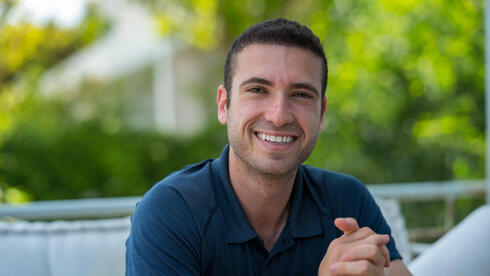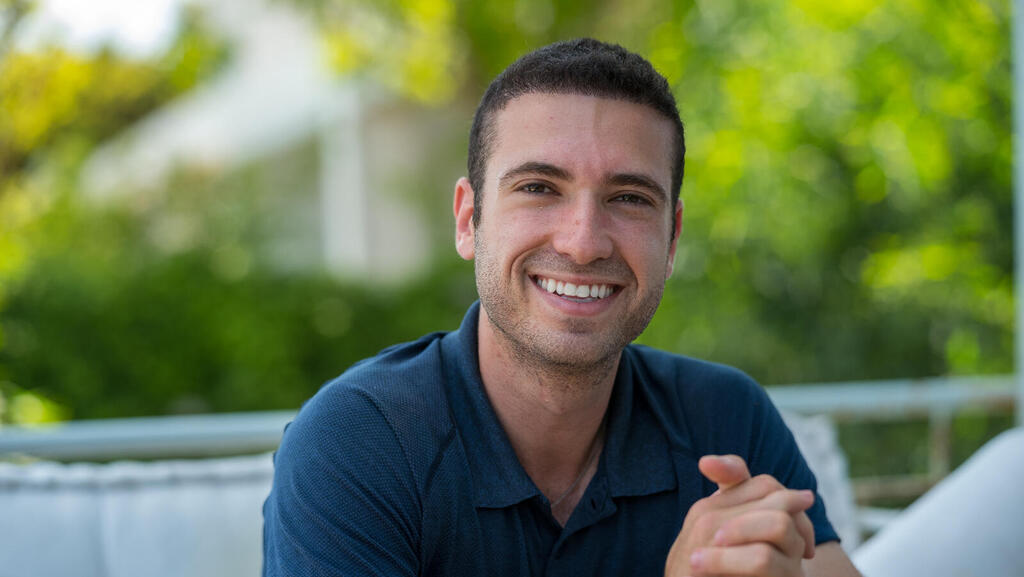
20-Minute Leaders
Holiday reading recommendation: 7 tech leaders using AI for social impact
The recent calls to stop the development of systems based on artificial intelligence (AI) due to "fundamental risk to humanity" led us to return to interviews with several leaders who make a contribution to humanity thanks to AI technologies.
The recent call by artificial intelligence (AI) experts to halt the development of the systems based on the technology due to a "fundamental risk to humanity" has led to a widespread debate in the industry. Among the claims that artificial intelligence improves the quality of everyday life by performing routine and even complicated tasks better than humans can, on the other hand, there are those who claim that artificial intelligence will cause, among other things, dramatic privacy risks and will cost workers in their workplace.
For the purpose of the discussion, we returned to recent episodes hosted by Michael Matias in the "20 Minute Leaders" podcast with a number of leaders who founded and are currently leading promising startups that base their products on AI technologies for the benefit of humanity.
Here are 7 things AI tools soon be able to do that will impact your life:
Cure neurological diseases through a smartphone camera: Micha Breakstone, the Co-founder & CEO of NeuraLight.ai
The serial entrepreneur Micha Breakstone (Previously Co-Founder & President of Chorus.ai, acquired for $575M by ZoomInfo) Co-Founded NeuraLight out of a strong personal mission to cure the world of neurological diseases following his grandparents' disease in dementia. Together with his co-founder and CTO, Edmund Benami, their startup aims to solve one of the most disturbing problems for all of humanity by diagnosing microscopic biomarkers from eye movements (e.g., during the act of calculating or trying to remember something) that are captured by a standard video camera or smartphone, and thus able to diagnose neurological diseases such as ALS, Alzheimer's and Parkinson's.
Helping governments and the private sector make more informed decisions to deal with climate crises: Shimon Elkabetz, the CEO of Tomorrow
Following climate crises that have worsened in frequency in recent years and also the increase in the intensity of the damages caused as a result, Shimon Elkabetz, co-founder of Tomorrow and a former officer in the Israeli Air Force, is determined to provide governments and the entire private sector with forecasts with an accuracy of 500 meters that are updated every minute, the tools they need to manage their climate risks (for example, preventing flight cancellations by airlines, improving the service of delivery services, logistical and budget planning of insurance companies, food, etc.).
Elkabetz predicts that in the future we will see more ventures on behalf of the private sector in the field of weather intelligence, as he calls it, in a way that private providers will support the technological development of governments on climate issues for the benefit of the general public.
Fighting injustice: Evyatar Ben Artzi, co-founder & CEO of Darrow
The two lawyers (Ben artzi and the co-founder Elad Spiegelman) who met in their studies and intern together at the Israeli Supreme Court wanted (together with the CTO Gila Hayat) to bring to the court an opportunity to deal more widely with the violations of justice that occur routinely against the general public.
The AI system developed by the LegalTech startup Darrow scans the Internet and identifies violations of the law of public interest. Among other things, the system detects violations in the field of consumerism, privacy, and the environment - such as air pollution, leakage of private information, and defective medicines. Law firms use the system to detect violations and take action against the violators, including through class action lawsuits.
In an interview with Michael Matias, the lawyer and fighter for justice in spirit, Evyatar Ben Artzi, tells how the technology met the social impact they are fighting to bring to the public and how they faced the challenges in building the platform at the beginning.
Improve the chances of success of surgeries: Dotan Asselmann, Co-founder & CTO of Theator
Theator stores video information from surgeries and uses computer vision and AI capabilities to identify the best-performed surgeries and also to identify mistakes.
The company's product will be used to create summaries of the significant moments from each surgery (like in a sports game), so that doctors can observe at and learn from their surgeries and present them easily to their students, thus enabling better quality training of interns.
Dotan Esselman, an expert in computer vision and the CTO of Theator tells us in this episode the challenges in the development of the product and the shared mission of the two co-founders (the CEO of the company, Tamir Wolf, who served as an IDF doctor in the 13 Fleet and a former executive in several start-ups in the field of medical devices, shared in another episode of "20 Minute Leaders" (https://youtu.be/PyesDXk4pDs) how the patient's surgery experience affected him when he was diagnosed with cancer right after the end of round A series of funding for this startup.
In the next step, the company intends to create, on the basis of the accumulated information, protocols that present the ultimate surgery, its most successful version, thus enabling even expert doctors who have completed their period as apprentices to learn from each other on a regular and daily basis. And in the future, the company's intention is to use the system to perform intelligent guidance of surgery, for a doctor or for a robot.
Get you a promotion: Shay David, Co-Founder, Chairman, & CEO of Retrain.ai
Retrain.ai develops an AI platform that maps the skills and training challenges of employees in large organizations undergoing accelerated change processes.
First, the platform breaks down the jobs that the organization is looking to fill into the list of tasks included in them, and then into the skills needed to perform these tasks, from no less than 50 thousand skills included in the platform's database.
In an interview with Dr. Shay David, the CEO, he talks about the future of the labor market and the digitalization revolution in big companies that caused enormous changes in the fields of health services, department stores, fashion and textile companies, etc. within which new positions are born and others die, Retrain's software is supposed to help corporations understand Which of the existing employees will be able to fill a new position, and who needs one or another training to integrate into it, and accordingly offers such training.
Make our water cleaner: Ari Goldfarb, the Co-founder & CEO of KANDO
You've probably already heard about KANDO, the company that was responsible for monitoring Covid through the Israeli wastewater, and for them (the Co-founder & COO, Zohar Scheinin), this was just the beginning - the company has an even bigger goal than this, which is to improve the quality of life of people around the world through wastewater.
Ari Goldfarb, CEO of Kendo, who led multidisciplinary environmental projects and served as an advisor to the Israeli Ministry of Environment, tells us in this episode about the big data revolution they are leading in the field of wastewater in order to create a global social impact.
The smart system which uses big data and AI can provide wastewater network operators with insights into network conditions in real-time. Thanks to the technology, the operators of the network get a complete, easy-to-understand, and continuous picture of what is happening in the sewage system under their responsibility, and thus make more informed decisions to improve the quality of the wastewater and the cleanliness of the streams we bathe in on the weekends, impact the water costs we pay, and of course, lead to an improvement in our health.
Find a cure for cancer: Luis Voloch, the Co-Founder & CTO of Immunai
Another successful AI-based startup that has been hosted on the "20 Minute Leaders" in the past is Immunai, a company that has set itself an extremely ambitious goal- to map information about cancer within our immune system.
Led by Voloch and his Co-founder Noam Solomon (the CEO), the platform measures and maps the immune system with advanced genetic sequencing technology, and shows what exactly is happening inside the human body's immune system, between millions of cells and connections when it actually scans a huge 'bank' of cells that are in different states of health and disease and provides insights that enable the development of new drugs and treatments for cancer.
With the help of the tools developed by the company (which already cooperates with one of the largest hospitals in Israel), it is possible to assess the quality of the medicine needed for a certain medical condition and its chances of getting approval from the FDA.
In an interview from their offices, the co-founder and CTO, Luis Voloch, a passionate math and data enthusiast, tells Michael Matias about his passion for managing diverse employees including doctors, engineers, data scientists, etc., around the development of an innovative product with tremendous social impact potential.
Michael Matias, Forbes 30 Under 30, is a Venture Fellow at Innovation Endeavors as well as an investment Venture Partner at Secret Chord and J-Ventures. He studies Artificial Intelligence and Human-Computer Interaction at Stanford University and was an engineer at Hippo Insurance. Matias previously served as an officer in the 8200 unit. 20 Minute Leaders is a tech entrepreneurship interview series featuring one-on-one interviews with fascinating founders, innovators, and thought leaders sharing their journeys and experiences.
Contributing editors: Michael Matias, Betty Elbert.













